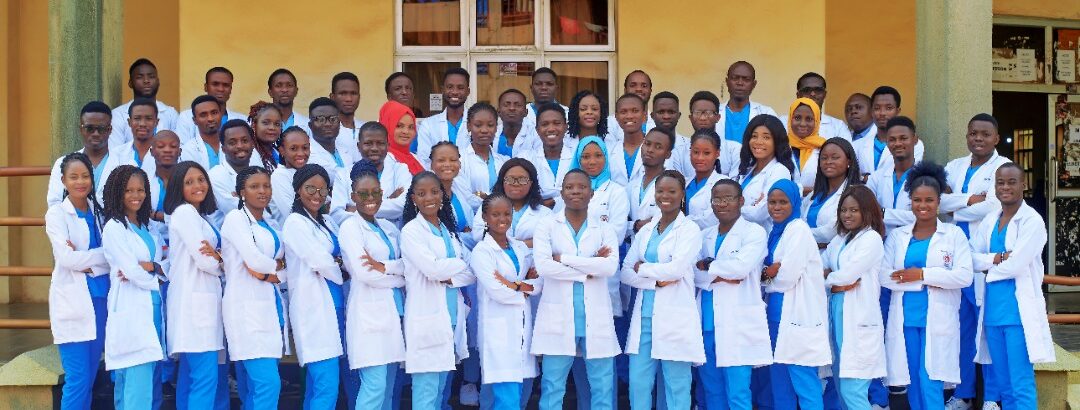Overtime, people have lived and continually acted in the illusion of so many erroneous thoughts or information about health care professionals (HCPs), especially Doctors and Nurses.
In turn, this has not only proven to affect the outlook of the professionals – even among themselves – but is also causing some form of issues among those close to them and the general public. Such as lack of trust in the healthcare system and workforce, misinterpretation of medical actions and advice, which would invariably affect the management plan and/or decision making of the patients, as well as the professionals. Hence, protracting their morbidity cases, and increasing the chances of mortality, among other things.
This article would, therefore, highlight some of these infamous misconceptions, as well as juxtapose them with actual fact – that gives perspective to whether they are true or not. Hence, enlighten the masses and clear the air.
MYTH 1: Doctors (and other HCPs) left in Nigeria are “olodo(s)” and/or they give substandard care.
“Olodo” is a Yoruba colloquial loosely translated as “dullard” or “academically unintelligent”.
FACT: Globally, Nigerian doctors are one of the best trained and most efficient doctors in whatever place they find themselves or are situated. Unfortunately, the Nigerian healthcare system or the general state of the entire country isn’t rewarding or appreciative of this greatness in the Nigerian doctor.
As much as it is common knowledge that doctors (and other HCPs) are seeking green pastures by writing various exams to emigrate out of the country daily in their numbers, this does not automatically imply that those left in the country are less brilliant or cannot write or pass those exams required to leave as well. Some are just determined or compassionate to stay behind, because “if we all leave, who will take care of the Nigerians at home?”. Likewise, some are not yet able to gather the “fortune” now needed to commence and complete their emigration process, while some others are being held back by families, roles and other duties they are bound to.
On substandard care: In comparison to other countries and developed clime where things actually work and functional systems are put in place – WE DO NOT EVEN HAVE THE BEAREST MINIMUM. In Nigeria, we have a (healthcare) system that is not only ineffective, but actually dying away and gasping for urgent resuscitation. Healthcare facilities are under-equipped, HCPs improvise basically for everything, the healthcare workforce is generally under-staffed, over-worked, not well compensated, while actively losing “brains”, “assets” and manpower. Likewise, the healthcare management or rulers at all levels don’t care as much and somehow, doctors (and other HCPs) are expected to optimally function and continuously provide results – whichever way they can. Against all odds, the gem – that is the Nigerian Doctor – still thrives and shines providing ground-breaking and world class healthcare services amidst their low resource setting and constraints.
A doctor once said, “Have you ever wondered why Nigerian doctors are always excellent and a force to reckon with everywhere else you find them, asides Nigeria? … A system cannot give what it does not have, we can only do as much as our immediate environment allow us to”.
MYTH 2: If a medic checks “online” or cross-check information in books doing consultations, then the person doesn’t know what he or she is doing and that makes the person an “Olodo”.
FACT: Double-checking sensitive referrals or confirming management protocols, dosages of medications or prescriptions via scientific evidence-based publications is standard practice of medicine in saner climes. This is because, no one person knows it all, humans are prone to errors and medicine is an ever-evolving profession with newer protocols, disease management and diagnosis guidelines coming up frequently. And this update can only be seen or known if they are looked up in books or online. Therefore, a medical personnel checking his/her gadget or book during consultation doesn’t automatically equate to them not knowing what they are doing. Sometimes or rather, most times, it’s in the best interest of the patient and towards getting the best appropriate and available care to whatever issues they presented with.
MYTH 3: Medical doctors shouldn’t be partisan in politics.
FACT: This is a totally misconstrued statement, as only professional medical bodies or associations (e.g., NMA, NARD, MWAN and the likes) cannot be partisan in politics, but individual doctors – like every other person affected by policies being made by politicians – are allowed to fully participate in political activities and even run for public positions. For example, we have trained medical doctors and other HCPs who have been elected or appointed into offices at local, state and national levels, i.e., as governors, speakers, ministers, senators and so on across the country.
MYTH 4: Medics can only serve or function or be appointed into only medical committees.
FACT: This is also untrue, because beyond been medical professionals, a lot of medics are knowledgeable and well competent in other fields. Either as an extension of their medical expertise or a total deviation from the medical line. Globally and nationally today, we have medical doctors who are doing well in economics, finance, insurance, entertainment, entrepreneurship, business, management, infrastructural and social development, engineering, and so on. Hence, so far, they are able to, medics can and should be allowed to serve and function beyond medical and medically related committees.
MYTH 5: Medics (especially, Doctors) shouldn’t profit off medicine… Medicine is a calling … The reward of the doctor (medical professional) is in heaven…
FACT: Medicine, like every other (noble) profession is a Job, and people take up jobs to earn a living. Although, a lot of people believe Medicine is or should be a calling because we deal with human lives; it is however one of the most profitable businesses with the largest market or customer base all over the world. This is due to the fact that, at one point or the other in a person’s life cycle, he/she/they would need some form of healthcare service or medicine provision for wellbeing. Also, because the cost of healthcare raises with inflation globally, healthcare workers – who are becoming endangered species in Nigeria – should be direct beneficiary of the increased value provided by them in their sector.
Unlike in the past, when being a doctor automatically comes with some form of revered prestige, recommendations and provision in abundance or enough to get by, and not get fixated or focus solely on the money-making aspect of medical practice – which then warranted the phrases, “Medicine is a calling…”, “The reward of the medical professional is in heaven” – those days are long gone. Because in our world today, being called “doctor” does not pay rents, put food on the table, sort children’s school fees or other needs of the doctor and his/her household.
Therefore, Medicine – beyond being a noble profession – is a Job, as it is a business. And Medics – who are at the forefront of the line slaving away and creating value in the healthcare system – should substantially profit off the labour of their hands, time and life.
MYTH 6: All doctors are rich.
FACT: This is a very subjective and relative statement, but most definitely, not all doctors are rich. “Rich” in this context, is being measured by salaries and earnings at different levels, across different specialists in different sectors of the country and even beyond. Most people think by the virtue of being a doctor, you are automatically “swimming in money”, but this is so untrue. Largely because how much money you have or earn as a doctor is extremely dependent on a lot of factors. Some of these include:
a) How long the doctor has been in practice – For instance, a doctor with 10 – 20 years’ experience in a particular field would of course earn more than a doctor with 3 – 5 years’ experience in the same field at the same institution or even a different one.
b) The speciality training and expertise of the doctor – Some specialities are highly demanded, more technical and time consuming than others. Hence, this would automatically increase the cost to get their skills, expertise and specialists.
c) Location of practice and expertise – Private healthcare facilities or organisations down south largely pay more than those up north. For example, the locum rate for a medical officer in Lagos may range from 1,000 – 2,000 NGN per hour, while in Abuja – the federal capital of the Nation – the locum rate in 2023 is still 400 NGN per hour or even less.
In today’s Nigeria, 400 Naira can hardly buy a filling square meal for just one person.
Furthermore, even in Lagos – the centre of excellence – some places would offer more remuneration than others with a wide margin of difference, based on locality, clientele and cost to run the private practices. However, in the public sector, this may differ. As a medical house officer in Lagos would typically earn an average of 150,000 NGN monthly, while this same cadre up north can earn above 200,000 NGN.
d) Sector or organisation of employment – Some sectors are generally known to be the “money rolling” space in medicine, as some pay in the high end 6-figures, and even in foreign currencies e.g., oil companies, international NGOs, tech companies and so on. Unlike the day-to-day regular public or private sector.
e) Network and net worth – The circles of influence and connections a medical personnel has, also determine the types of opportunities they would be exposed to. Hence, a doctor with a high-level network and net worth, would mostly likely be in a high earning or profit circle and vice versa.
f) Diversification and side hustle – Another factor that makes doctors rich are their ability and resilience to effectively combine side hustles, asides their main employment or profession, in order to earn more. Some diversify into businesses or rendering one service or the other.
g) Being a “trust fund kid” or belonging to a rich well-to-do family – Some of the doctors (especially, the younger ones) seen in the early stage of their careers with luxurious cars, items or lifestyles, are most likely not spending their income made from medicine on those things. Instead, they might just be enjoying the wealth of their parents or family.
On a final note, a wise man once said, “The doctor of the poor is also a poor person, and most Nigerians are poor”… food for thought.
… To be continued here.
Editor’s note:
This article was compiled and written by Mary O. Agoyi. Other contributors are Kunmi Ogunyemi, Sharon Chinwuba, Oshati Oyindamola, Joshua Olajugba, Nonso Ikechukwu, Olamide Sowole, Ayinde Tegzi and other members of the 2017 medical and dental class of College of Medicine, University of Lagos (CMUL).



